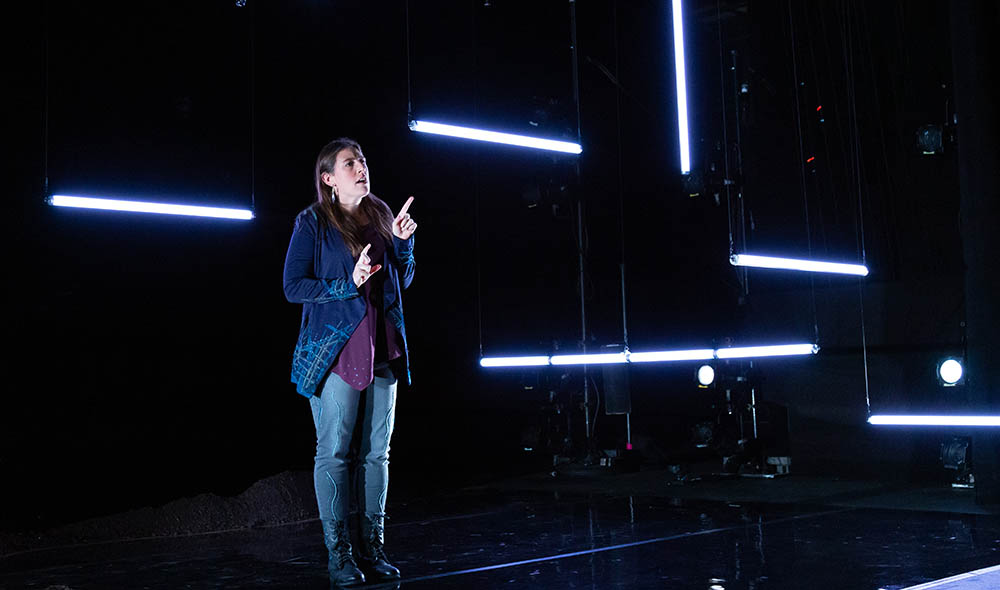
Where We Belong is an impressively credentialed show from The Woolly Mammoth Theatre Company in association with the Folger Shakespeare Library, and this month it’s launching its national tour in Philadelphia. The promo postcard tells us that the Suzanne Roberts Theater stands on the indigenous territory known as “Lenapehoking,” the traditional homelands of the Lenape Indians, although the focus of the show is on the Mohegan tribe.
This is a show with a cause, though its political agenda is never quite clarified in the course of this overlong one-woman show. It is “complicated,” as we’re told over and over again.
Madeline Sayet, an indigenous director, TED Fellow, and recipient of many awards and honors including The White House Champion of Change Award, is the writer and performer, and if Where We Belong has a plot, it goes something like this:
As a child, she is raised by her Mohegan mother, divorced from a Jewish father whose influence in Sayet’s life is next to nonexistent. She is named Acokayis, which means blackbird, a name she shares with Bodernasha, the last fluent speaker of the Mohegan language. This places a burden on the girl who grows up to fall in love with language, especially that of Shakespeare’s plays.
She goes to England to study for her PhD. She plans to direct plays to reveal their colonial bias and to cast indigenous actors in indigenous roles, but she is haunted by her ancestors’ voices and hounded to come home by her mother via Skype. Using airport barriers and the Brexit vote as easy symbols, she traces her struggles between wanting to honor her heritage and wanting the world to be peaceful and united. Ultimately, she quits the PhD program.
Sayet utilizes a variety of voices to differentiate her characters, indicting the Brits with many embarrassingly bad accents and performing her mother’s role in a crass and mocking tone. She obviously expects sympathetic laughter, which was not on offer the night I saw this show.
Most problematic is her discussion (this is more a lecture/harangue than a play) of The Tempest. Prospero, as she tells it, is the oppressive colonizer and Caliban the disinherited native of the island. She presents this idea as if it is original, but anybody who knows anything about Shakespearean studies (and Sayet has a master’s in postcolonial theory and Shakespeare) knows that in the 60s and 70s postcolonial criticism—using exactly the example of The Tempest—was all the academic rage.
I would have loved to hear some of the traditional Mohegan stories she hints at, but instead all we get is a young woman’s earnest and confused identity crisis.
[Philadelphia Theater Company at the Suzanne Roberts Theater, 480 S. Broad St.] April 15-May 8, 2022; philadelphiatheatrecompany.org
